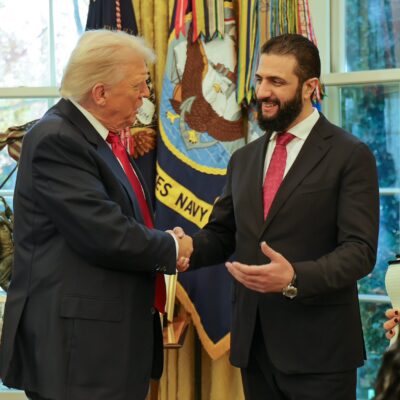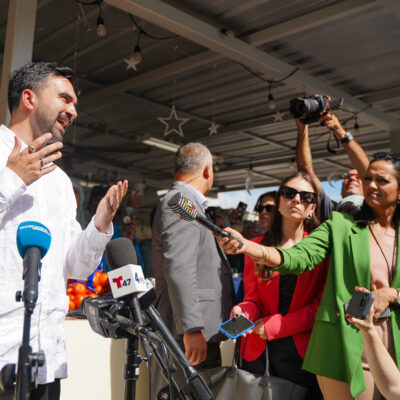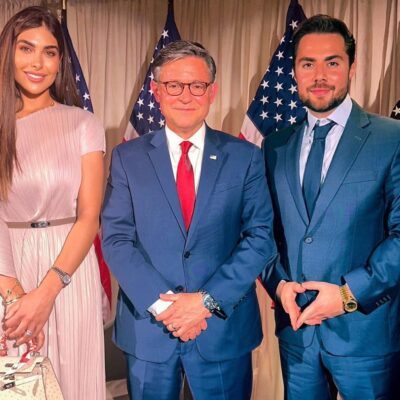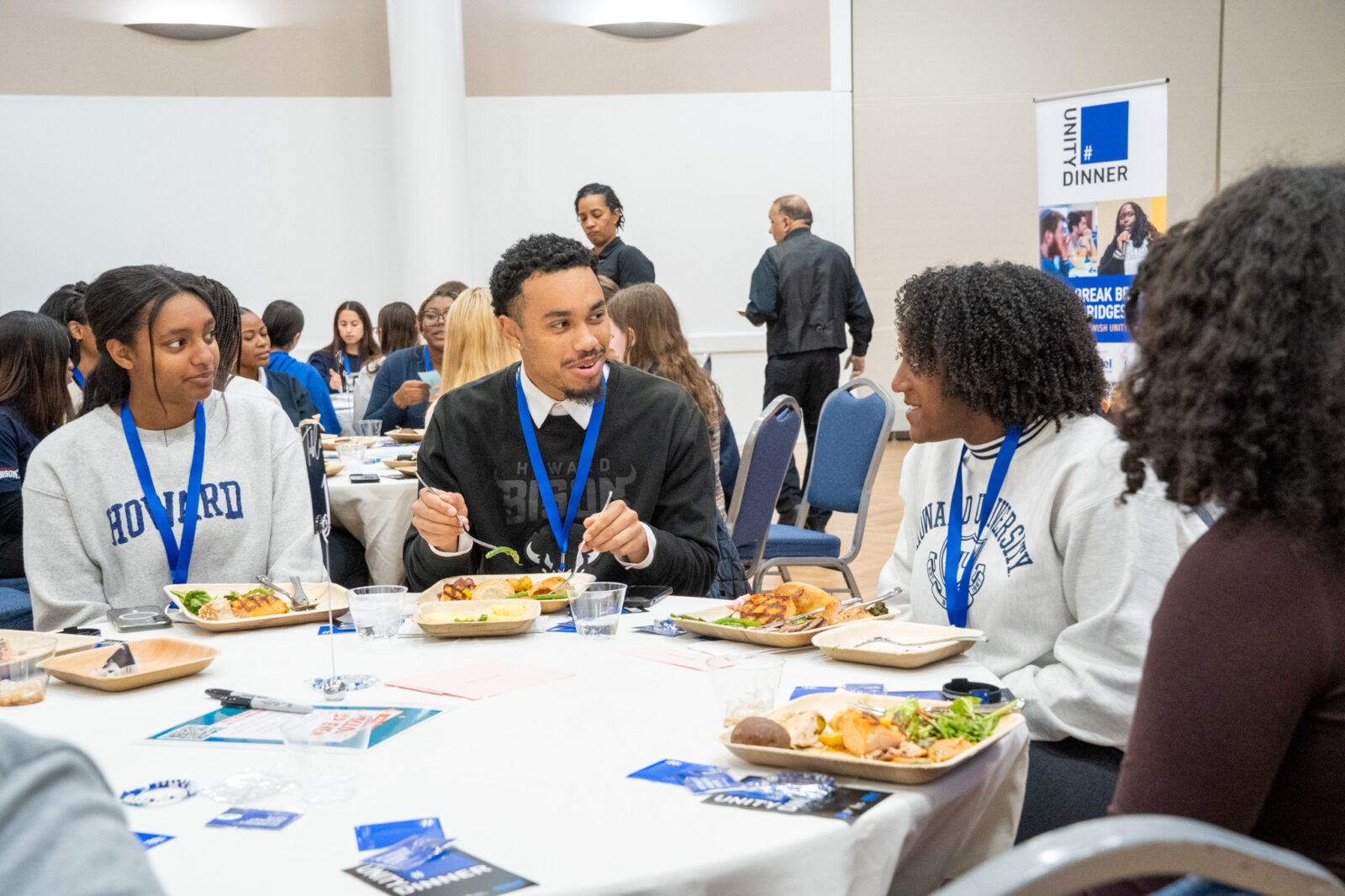
United Negro College Fund
Black and Jewish college students explore shared adversity and allyship at DC-area ‘Unity Dinner’
Sponsored by Robert Kraft’s Blue Square Alliance, Hillel International and the United Negro College Fund, the event brought together over 100 students in an effort to rebuild the Black-Jewish alliance of the Civil Rights Movement
The official reason that more than 100 college students from across Washington gathered in a ballroom at George Washington University last week was for a formal dinner billed as an opportunity to build bridges between the Black and Jewish communities.
But what really got the students — undergrads from GWU, American, George Mason, Georgetown, Howard and the University of the District of Columbia — talking at this event, which was meant to highlight commonalities and spark deep connections between students from different backgrounds, was a breezy icebreaker: Is a hot dog a sandwich?
That was one of several lighthearted prompts for the students to discuss as they settled into dinner and got to know each other at tables of 10. Later, after they had introduced themselves and playfully debated topics like who would play them in a movie and their least favorite internet trends, the students turned to more personal questions about identity, community and belonging. It was an exercise carefully calibrated to build connection free from rancor, where the students could speak about themselves and their identities as racial and religious minorities without fear of judgment.
“Every single time, I am amazed at the discussion and how vulnerable people will be,” said Arielle Levy, vice president of diversity, equity and inclusion at Hillel International. Levy shepherded the students through the increasingly more serious questions during last week’s dinner program. “I just really hope it leads to action, because that’s really what we’re hoping for.”
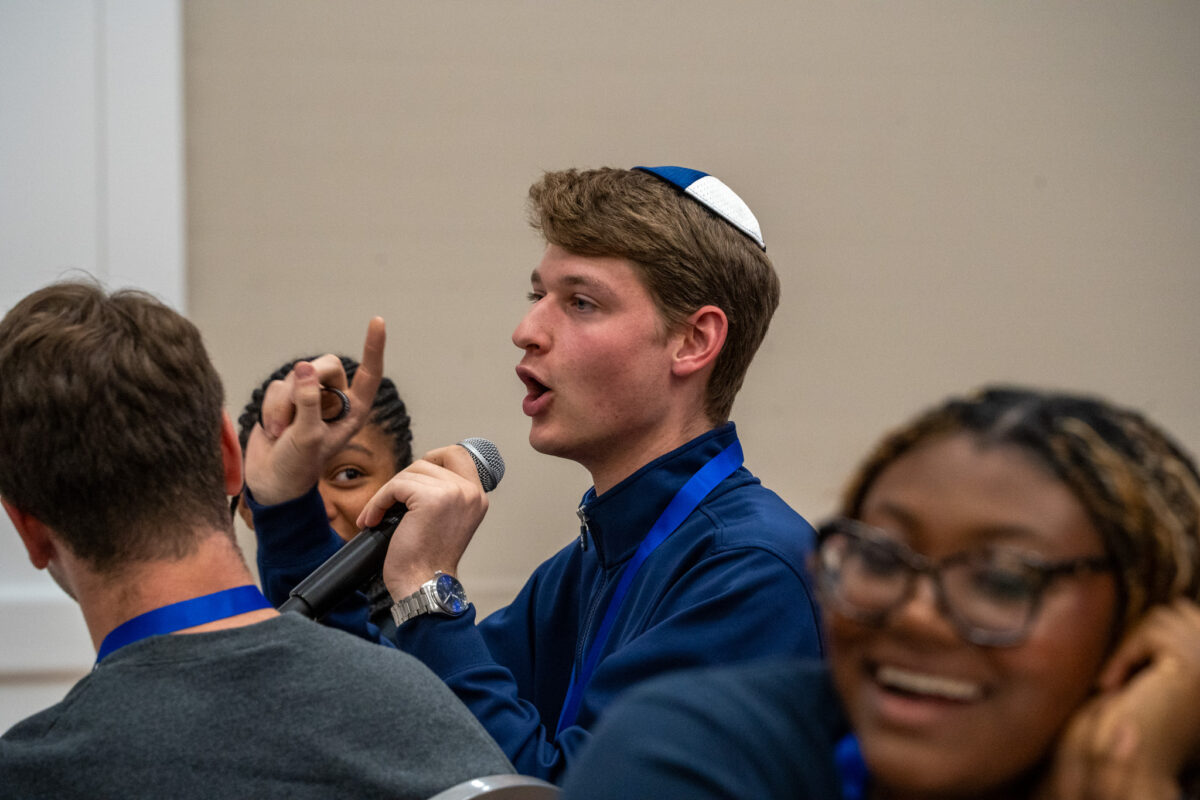
Formally dubbed the “Unity Dinner,” the event was sponsored by Robert Kraft’s Blue Square Alliance, Hillel International and the United Negro College Fund. The Washington event was one of 14 such events taking place in cities across the country this academic year. It is an expansion on a pilot project, which began last year with the core belief that rebuilding the storied — but strained — Black-Jewish alliance of the Civil Rights Movement must start at a grassroots, interpersonal level. After seven unity dinners last year connecting Black and Jewish students, the funders became convinced that supporting dialogue in intimate settings like this is one of the best ways to fight hate.
“You see this micro-connection that starts to build understanding and awareness,” Tara Levine, Blue Square Alliance’s chief partnership officer, told Jewish Insider at the dinner. “Then over time, that builds empathy, and that becomes something that students share with one another, within their communities, across communities. It is ultimately how we address the underlying divide and start to overcome some of the hate that we’re seeing.”
The students all had different reasons for coming. Some wanted to meet new people. Others were excited by the prospect of putting off homework for a few hours. Several learned of it from professors who piqued their curiosity.
“I actually take a class on the Holocaust and modern-day politics at Howard University, and my professor is Jewish, and he told us about the specific event that we could come out to,” said Joy Baker, a freshman at the historically Black university. “We were automatically interested.”
The whole idea of bringing Black and Jewish students together over dinner, with no agenda beyond getting to know one another, began in Atlanta with John Eaves, a professor at Spelman College who is both Black and Jewish. He is well-versed in the history of Black and Jewish activists working together during the Civil Rights Movement; his own synagogue, The Temple, was bombed for its support of civil rights in 1958 — but now, Eaves sees that knowledge has lapsed among younger generations in both communities.
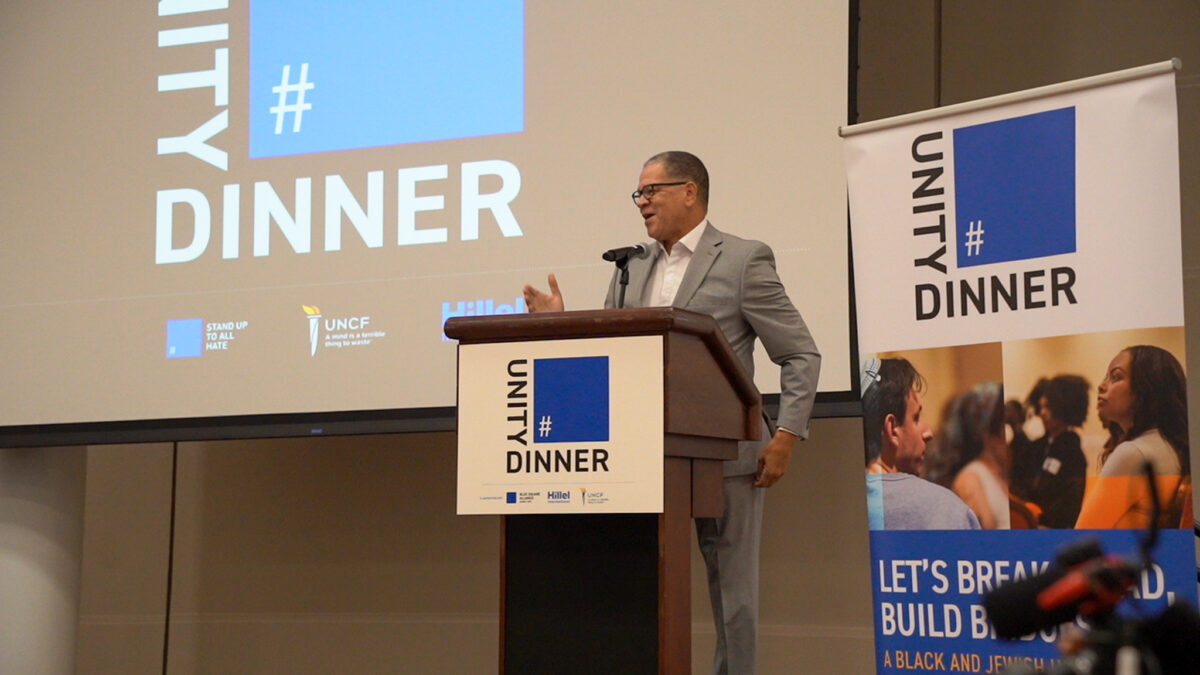
“One day, I heard a Baptist preacher tell me that he felt that Jews were unlikely allies. What?” said Eaves, who is also the program director of the Tikkun Olam Initiative and Social Innovation Fund at the United Negro College Fund, an organization that provides financial support to historically Black colleges and universities. “That spoke to the possibility, but it also spoke to the challenge. They’re allies, but he did not think of Jews as allies. I see this as planting the seed.”
The discussions don’t directly touch on Israel, but the dinner organizers said that the events happening in the Middle East have not kept people away from the events. The main impact Eaves has seen is on American Jews’ wariness toward once-allied communities who they felt had abandoned them after the Oct. 7 attacks two years ago. He encouraged Jews, even those who still feel raw, to not yet write off their wayward allies, and to follow the lead of the college students.
“I think the Jewish community felt sucker punched by Oct. 7, and felt like there’s very few people who have been there for us. There’s a degree of sensitivity right now, in terms of ‘nobody’s really there for us,’” said Eaves.
“This type of thing is doable. The Jewish community has to understand the power of the ask, not minimize our ability to make the ask. People respond in a positive way. That’s the piece that I think is missing, the limited number of asks that are made,” Eaves added. “Make the ask. All people can say is no.”
At tables throughout the room, over soda and parve desserts, students spoke from the heart: What brings them pride in their community? What gives them a sense of belonging? When have they felt fully free? And were there any commonalities in the answers of students from different backgrounds?
Baker, the Howard student, said she learned things that surprised her, “like how much the Jewish community and the Black community are low key kind of the same.”
By the end of the night, the room was abuzz with the excited chatter of new friends, who had already set up group chats and followed each other on Instagram. Most said they planned to attend a Passover Seder at Howard in the spring, but many hope to meet up sooner — made easier by grants available from Hillel International to encourage continued dialogue.
The students smiled and laughed as they walked out the door, talking with people they did not know two hours ago. They each were carrying something that is sure to excite all college students, regardless of race, religion or university: a free T-shirt from the event.




